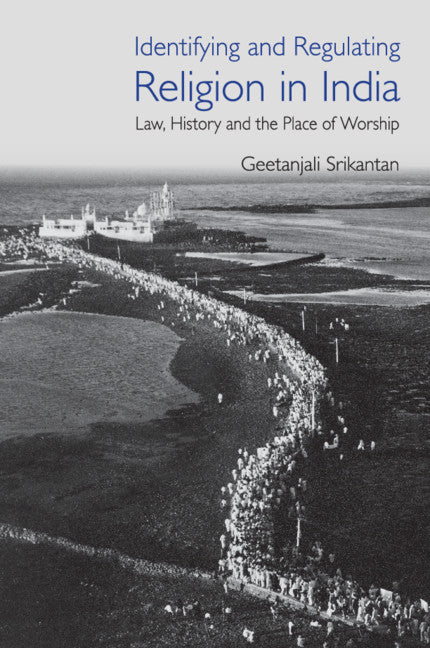Freshly Printed - allow 4 days lead
Couldn't load pickup availability
Identifying and Regulating Religion in India
Law, History and the Place of Worship
This book takes up the challenge of legally defining religion in contemporary India by investigating the intellectual history of colonial law.
Geetanjali Srikantan (Author)
9781108840538, Cambridge University Press
Hardback, published 29 October 2020
258 pages
23.5 x 15.8 x 2 cm, 0.46 kg
'Geetanjali Srikantan makes a significant contribution to our understanding of the manner in which the colonial encounter shaped both law and religion in India. Through a dual process of theologisation and secularisation grounded largely in Christian European self-understandings, both Hindu and Muslim law were remade in the image of colonial rationality as these traditions were incorporated by Anglo-Indian courts. Moving from the codification of indigenous legal systems, to the transformation of temple donations in terms of the English law of trusts and property, to the contemporary conundrum over how to define the “essential practices” of religion in the Indian Supreme Court, Srikantan shows how Indian law and society have inherited certain, arguably insoluble contradictions from European secularism. Identifying and Regulating Religion in India will be of interest not only to students of South Asia and colonialism, but also to those concerned with broader debates over secularism and religious freedom.' Robert A. Yelle, LMU Munich
Judicial debates on the regulation of religion in post-colonial India have been characterised by the inability of courts to identify religion as a governable phenomenon. This book investigates the identification and regulation of religion through an intellectual history of law's creation of religion from the colonial to the post-colonial. Moving beyond conventional explanations on the failure of secularism and the secular state, it argues that the impasse in the legal regulation of religion lies in the methodologies and frameworks used by British colonial administrators in identifying and governing religion. Drawing on insights from post-colonial theory and religious studies, it demonstrates the role of secular legal reasoning in the background of Western intellectual history and Christian theology through an illustration of the place of worship. It is a contribution to South Asian legal history and sociolegal studies analysing court archives, colonial narratives and legislative documents.
Acknowledgements
Introduction
1. Secularisation and Theologisation: The Making of 'Hindu Law' and British Colonialism
2. The Role of Legal Hermeneutics as Secularisation in the Formation of Anglo-Muhammadan Law
3. Influences and Confluences: The Theological Foundations of Western Property Law and the Place of Worship in India
4. Identifying 'Doctrine': Tracing Theologisation in Legal Narratives of the Place of Worship in India
5. Rethinking Definitions: Hinduism as Religion in the Indian Supreme Court
Conclusion
Glossary
List of Cases
Bibliography
Index.
Subject Areas: Legal history [LAZ], History of religion [HRAX], History [HB]


